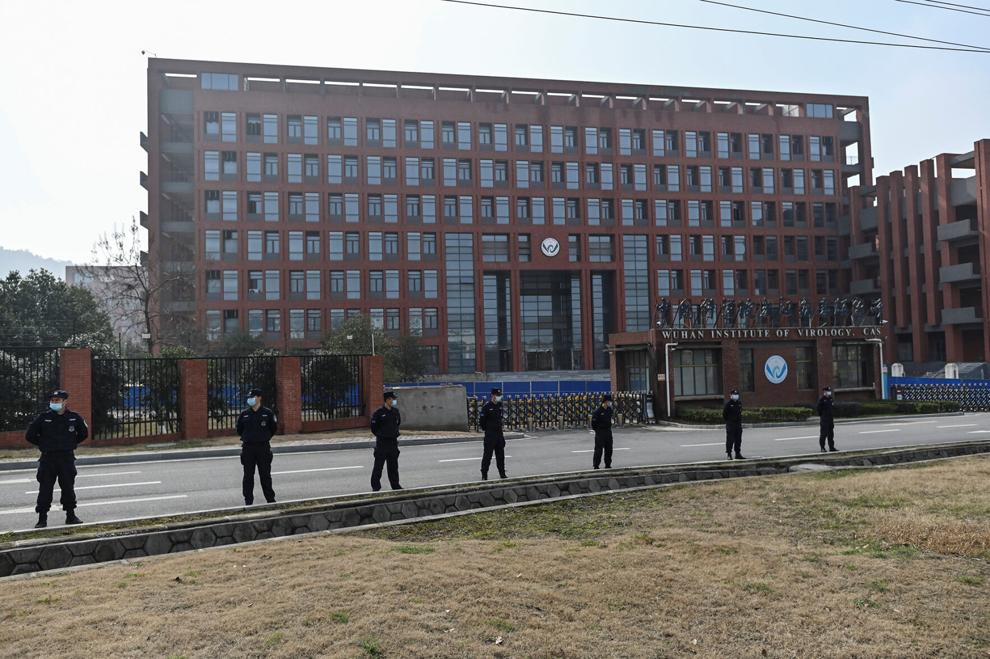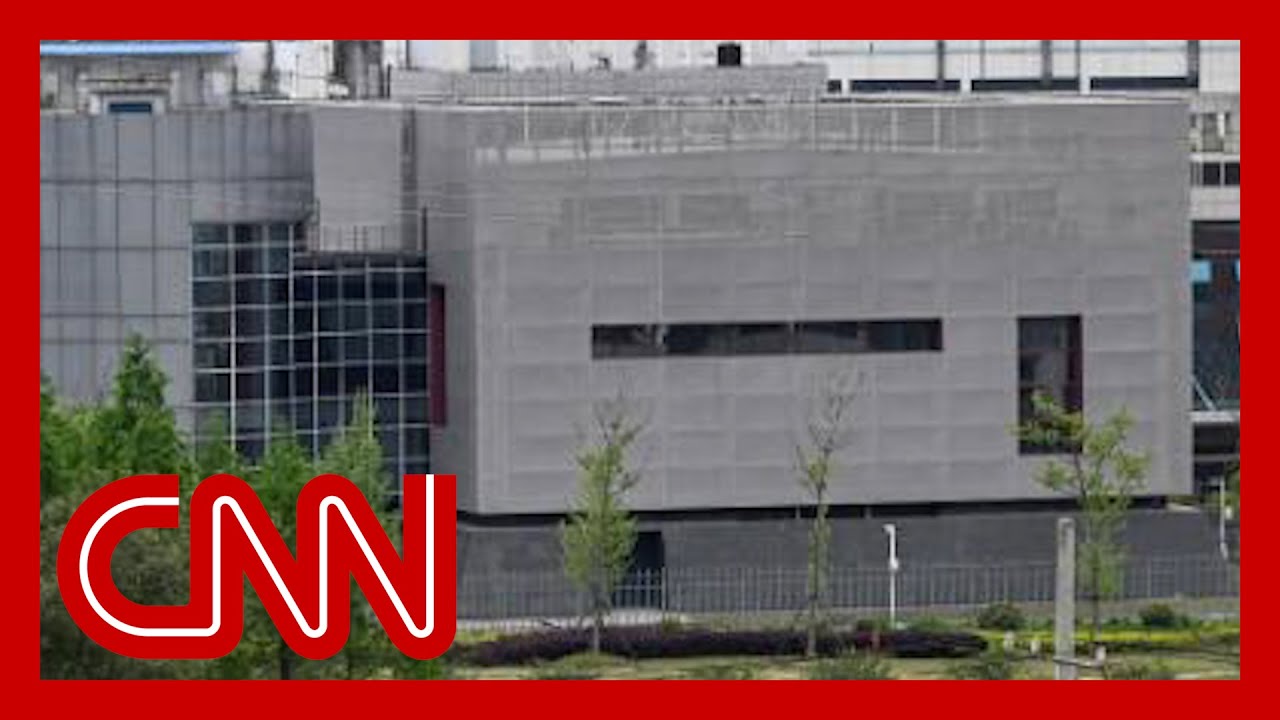COVID-19 Lab-Leak Theory Gains Traction As Intelligence Reports Surface
According to a freshly updated secret intelligence analysis by the US Department of Energy, COVID-19 lab-leak theory gains traction originated from a laboratory breach in China.
Author:Suleman ShahReviewer:Han JuFeb 27, 202386.2K Shares1.1M Views

According to a freshly updated secret intelligence analysis by the US Department of Energy, the COVID-19 lab-leak theory gains tractionoriginating from a laboratory breach in China.
According to two individuals, the Department of Energy concluded in its intelligence assessment that it had "low confidence" that the Covid-19 virus escaped accidentally from a laboratory in Wuhan.
US Energy Department Joins The Discussion
Recently, the US Energy Department joined the discussion, stating that COVID-19 was likely a result of a lab leak. This statement further highlights the divide among intelligence agencies on the origins of the pandemic.
The US Energy Department's assessment that COVID-19 was likely a result of a lab leak has further highlighted the divide among intelligence agencies.
Some experts have welcomed the new information, saying that it could lead to a better understanding of how the pandemic started and how to prevent future pandemics.
Othershave criticized the assessment, saying that it is based on incomplete and unverified information.
Regardless of the response to the assessment, the need for a thorough investigation into the origins of the pandemic is necessary.
The World HealthOrganization has already conducted a joint study with China on the origins of the virus, but many experts have criticized the study as incomplete and lacking in transparency.

US Energy Department assesses Covid-19 likely resulted from lab leak
The Lab-Leak Theory
Intelligence reports and assessments from various agencies suggest that the lab-leak theory is a plausible explanation for the origins of COVID-19.
According to these reports, researchers at the Wuhan Institute of Virology became infected with the virus in the fall of 2019, before the first cases were reported in the city.
These reports are based on incomplete and unverified information, but they have renewed interest in the origins of the pandemic.
The theory suggests that the virus may have accidentally escaped from the Wuhan Institute of Virology, a research facility that specializes in studying bat coronaviruses.
The lab-leak theory gained traction when it was discovered that the institute was only a few miles away from the wet market where the first cases of COVID-19 were reported.
However, not all intelligence agencies agree on the lab-leak theory. Some maintain that the virus originated from an animal and was transmitted to humans at the wet market in Wuhan. The divide among intelligence agencies has led to a lack of consensus on the origins of the pandemic.
Divide Among Intelligence Agencies
The US Energy Department's assessment has highlighted the divide among intelligence agencies on the origins of COVID-19.
While some agencies believe that the lab-leak theory is a plausible explanation, others maintain that the virus originated from an animal and was transmitted to humans at a wet market in Wuhan.
The Need For A Thorough Investigation
Regardless of the divide among intelligence agencies, experts agree that a thorough investigation into the origins of the pandemic is necessary.
The World Health Organization has already conducted a joint study with China on the origins of the virus, but many experts have criticized the study as incomplete and lacking in transparency.
Final Words
As the world continues to grapple with the COVID-19 pandemic, it is essential to understand where the virus came from to prevent future pandemics.
The lab-leak theory may be the key to unlocking this information, but more research and investigation are needed to confirm or refute this theory.
The divide among intelligence agencies further highlights the need for a thorough and transparent investigation into the origins of COVID-19.

Suleman Shah
Author
Suleman Shah is a researcher and freelance writer. As a researcher, he has worked with MNS University of Agriculture, Multan (Pakistan) and Texas A & M University (USA). He regularly writes science articles and blogs for science news website immersse.com and open access publishers OA Publishing London and Scientific Times. He loves to keep himself updated on scientific developments and convert these developments into everyday language to update the readers about the developments in the scientific era. His primary research focus is Plant sciences, and he contributed to this field by publishing his research in scientific journals and presenting his work at many Conferences.
Shah graduated from the University of Agriculture Faisalabad (Pakistan) and started his professional carrier with Jaffer Agro Services and later with the Agriculture Department of the Government of Pakistan. His research interest compelled and attracted him to proceed with his carrier in Plant sciences research. So, he started his Ph.D. in Soil Science at MNS University of Agriculture Multan (Pakistan). Later, he started working as a visiting scholar with Texas A&M University (USA).
Shah’s experience with big Open Excess publishers like Springers, Frontiers, MDPI, etc., testified to his belief in Open Access as a barrier-removing mechanism between researchers and the readers of their research. Shah believes that Open Access is revolutionizing the publication process and benefitting research in all fields.

Han Ju
Reviewer
Hello! I'm Han Ju, the heart behind World Wide Journals. My life is a unique tapestry woven from the threads of news, spirituality, and science, enriched by melodies from my guitar. Raised amidst tales of the ancient and the arcane, I developed a keen eye for the stories that truly matter. Through my work, I seek to bridge the seen with the unseen, marrying the rigor of science with the depth of spirituality.
Each article at World Wide Journals is a piece of this ongoing quest, blending analysis with personal reflection. Whether exploring quantum frontiers or strumming chords under the stars, my aim is to inspire and provoke thought, inviting you into a world where every discovery is a note in the grand symphony of existence.
Welcome aboard this journey of insight and exploration, where curiosity leads and music guides.
Latest Articles
Popular Articles